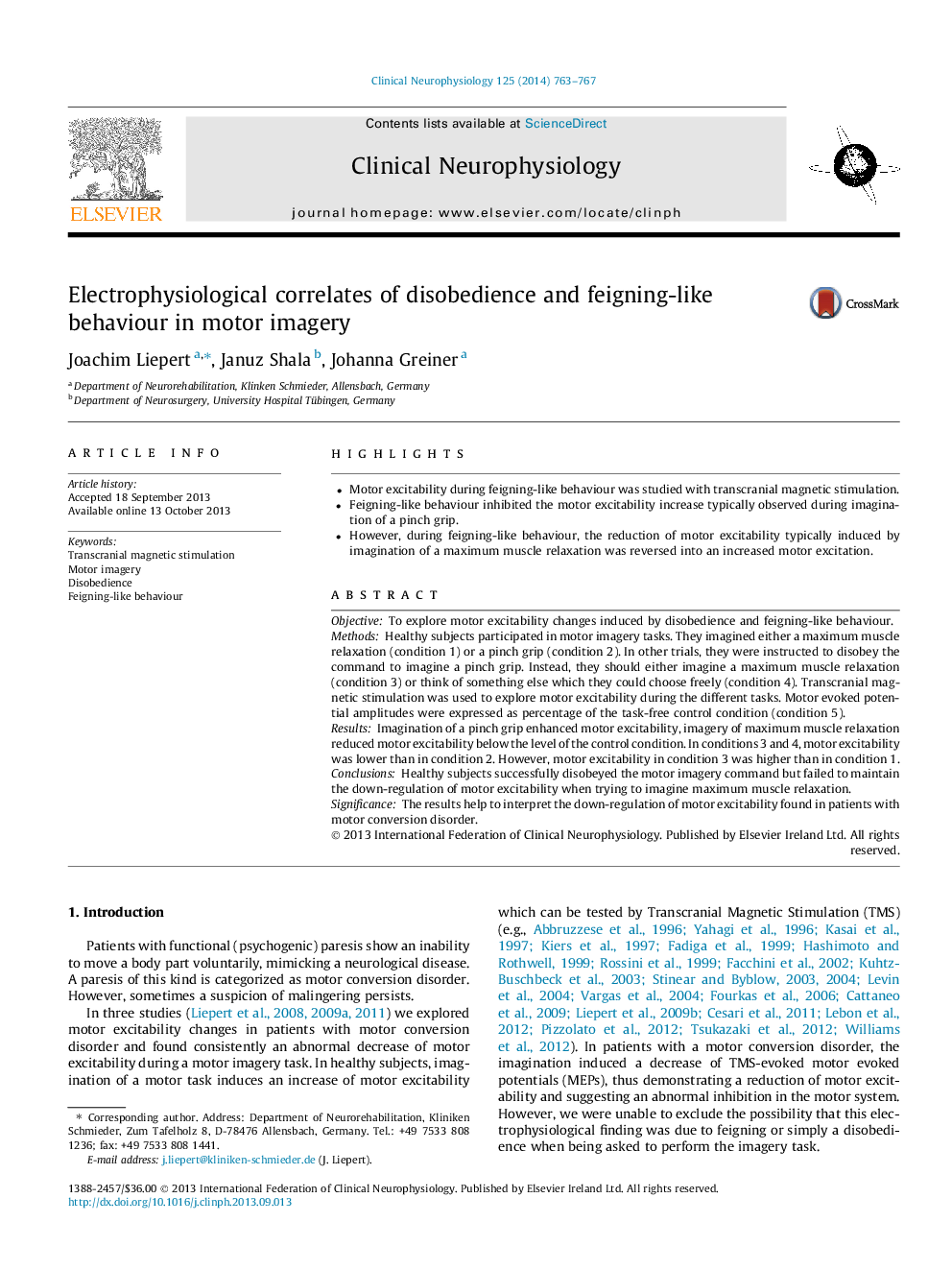| Article ID | Journal | Published Year | Pages | File Type |
|---|---|---|---|---|
| 6008415 | Clinical Neurophysiology | 2014 | 5 Pages |
â¢Motor excitability during feigning-like behaviour was studied with transcranial magnetic stimulation.â¢Feigning-like behaviour inhibited the motor excitability increase typically observed during imagination of a pinch grip.â¢However, during feigning-like behaviour, the reduction of motor excitability typically induced by imagination of a maximum muscle relaxation was reversed into an increased motor excitation.
ObjectiveTo explore motor excitability changes induced by disobedience and feigning-like behaviour.MethodsHealthy subjects participated in motor imagery tasks. They imagined either a maximum muscle relaxation (condition 1) or a pinch grip (condition 2). In other trials, they were instructed to disobey the command to imagine a pinch grip. Instead, they should either imagine a maximum muscle relaxation (condition 3) or think of something else which they could choose freely (condition 4). Transcranial magnetic stimulation was used to explore motor excitability during the different tasks. Motor evoked potential amplitudes were expressed as percentage of the task-free control condition (condition 5).ResultsImagination of a pinch grip enhanced motor excitability, imagery of maximum muscle relaxation reduced motor excitability below the level of the control condition. In conditions 3 and 4, motor excitability was lower than in condition 2. However, motor excitability in condition 3 was higher than in condition 1.ConclusionsHealthy subjects successfully disobeyed the motor imagery command but failed to maintain the down-regulation of motor excitability when trying to imagine maximum muscle relaxation.SignificanceThe results help to interpret the down-regulation of motor excitability found in patients with motor conversion disorder.
